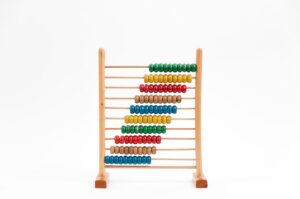Archive for month: September, 2020
Should a buyer ask for a price reduction or request a seller credit (concession)?
When a buyer finds out a home needs needs repairs, the buyer can:
- Ask the seller to do the repairs.
- Ask for a seller credit.
- Ask for a sales price reduction.
If the seller won’t do repairs, but is willing to compensate the buyer, then the buyer must decide whether to request the credit or price reduction. What’s the difference?
- A seller credit or concession is deducted from the seller’s side of escrow’s balance sheet and credited to buyer’s side. The seller credit directly reduces the total amount due to purchase the home.
- A sales price reduction is as simple as reducing the purchase price, yet has a negligible effect on the amount of money the buyer must bring to closing to purchase the home.
The only time a sales price reduction makes sense is if you are a cash buyer.
The reason is that a reduction of the sales price for the cash buyer is realized instantly at close of escrow. The amount of the reduction is directly deducted from the amount the buyer has to bring to closing in order to purchase the home.
This is not the case with financing buyers.
Now, I know the counter-augment. A reduction of the sales price saves the buyer on property taxes. This is true, but doesn’t even close to justifying choosing a price reduction over credit.
Let’s look at the math. Let’s say the buyer can choose between a sales price reduction or seller credit of $7,000. The price reduction of $7,000 will save the buyer ~$73 annually. If we divide the $7000 by the annual savings of $73 then we see it takes a whopping 96 years before the first year of tax savings is realized. But, hey, on year 97 you will save $73!
Let me be clear, cash and finance buyers are worlds apart in terms of their cost to acquire a property. Finance buyers are borrowing massive sums of money. It’s just very common so we are desensitized to it. The reason that finance borrowers are taking on such a massive debt is because they likely have no more than 1/5th price of the cost of the home in cash that can be used as down payment. Only 1/28th of the price of the home in cash for FHA buyers. What do these numbers mean? It means that every penny of money that can be immediately realized by the buyer is precious.
So, if a buyer can get a credit from their agent or the seller then it has tremendous financial impact. That $7000 credit from the seller instantly reduces the amount the buyer has to bring to closing. That’s $7000 more the stays in the buyer’s pocket. A finance buyer is in no position to apply it to the purchase price.
There is a missing piece – mortgage savings. If there is a reduction of the sales price then it proportionally will reduce the loan amount of the buyer. If the buyer is getting a loan for 80% of the sales price, then the loan amount should drop 80% of the credit, In this case 80% of $7,000 is $5,600. That might save the buyer $25 a month or $300 a year. Let’s say the buyer can save $370 a year on mortgage and property taxes from the $7,000 sales price reduction. It will still take the buyer 19 years to breakeven. This means that it won’t be until year 20 of home ownership that the buyer sees annual savings of $370. By then, inflation and mortgage interest have buried the abstract price reduction. Meanwhile, a $7000 credit that is as good as cash would have had a powerful impact right at closing.
The answer is simple for a finance buyer – choose the credit.
If you are interested in 100% commission real estate then please CLICK HERE for more information.
Recent Posts
Contact
Tel. 888.787.8808
info@balboateam.com
Main Office: 5256 S. Mission Rd. Suite 123
Bonsall, CA 92003






